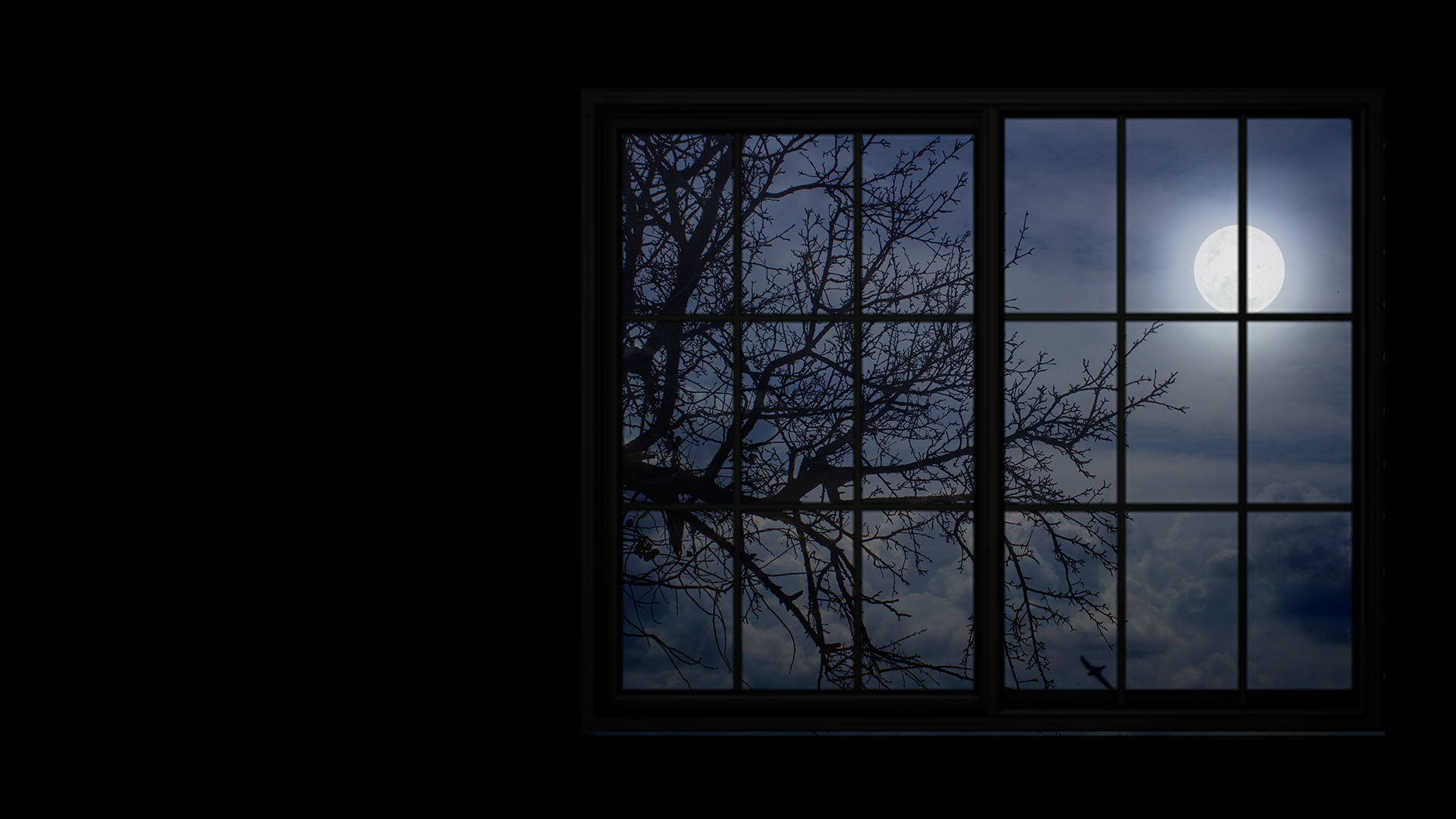
The Widow, the House, the Porch and the Stars
A Kentucky poet explores who we are, the places we inhabit and the skies that shimmer above us.
Our Widowed Grandmother Drives the Red Convertible That Her Husband Left Her
Marriage is a shackle. Her three-legged dog paces her backyard’s
Marriage white-railed fence.
Escape is unholy, not to be considered. Long-limbed pines spring up from
Marriage dragon’s teeth she sowed
along the four-lane road. Escape is illegal. Midnight’s headlights startle
Marriage her smallest birds.
Escape would be cheating. This is our grandmother: she dodges bullets,
Marriage she throws knives,
she laments the world’s disorder. Ensconced in her porch’s magazine stacks,
Marriage she reads reviews,
society pages. East winds dazzle the dyed-blue barometer. She ducks
Marriage her head under the news.
We struggle beneath her approval. Empty boxes hang overhead
Marriage at supper. She blossoms
in other people’s confidences, determined to dissuade. Tornado sirens
Marriage dot her landscape, singing
their green-eyed April songs. Her inversion, a habit unbreakable as
Marriage stalest bread. A world advances
under stacks of books, hoarded gelatin, postcards sent and received,
Marriage never thrown away.
We wash our hands, empty ashtrays. Hiding in hallways, we reach for
Marriage her shattered elephants.
Marginalia — that gas station stop, the beer she swore she never sipped —
Marriage sew their blue threads
into her skirt’s hidden hem. She sees around buildings, plants, a boxwood
Marriage hedge: windbreak.
Iron leaves frame her sharp, plastic cushions. On a cloudless day,
Marriage she waits for rain to fall
out of her tree-splintered sky. Rookwood, its chipped edge. Possibility lingers
Marriage behind closing doors,
each hallway more narrow than before. Left alone in the garden,
Marriage we become witchless.
She checks our nails for dirt and spindles, laments the missing golden plate.
Marriage We swear on her family
farm: hand-painted wood is all that floats. Dizzy from the fumes, she drives
Marriage with both feet on the pedals.
Her patio’s bricks jump up to surround the garden. Brake lights shining,
Marriage she accelerates. She goes on.
Watch her life lay down before you. One single century shimmers
against her shaking hand. Night sky of the last calf’s deepening
voice, clouded ripples of a quieting creek. Pick at threads of her
floursack quilt. Search her windows for the worst-tempered
children. Compose the tiniest blue flowers into forgotten faces.
children. Compose the tiniest blue flowers into forgotten faces.No
ghost here. Only the woman whose husband died in bed beside her,
death-rattle waking her into the room where passing cars’ headlights
didn’t reach. The moon hurled its shining blue light down onto
the coverlet. His breath’s last choke stretched out beside her, followed
her, echo & throat, to a bathroom’s safety. Pale porcelain, darkened
mirror, described by the room’s pale green walls. One room always
built for only one.
built for only one.She waited for the scene where beginnings turn,
bloom — fragrant as June’s magnolia — & rise to meet a happy end.
But in this creased & fading photograph, our gaze lingers on the
flattened garden, its new shoots trampled by sirens, blue lights, the
gurney’s heft & click. Splash of silence coating every crowded shelf.
Southern gothic is a setting, not a story.
Southern gothic is a setting, not a story.Like a breathless dream’s
unrehearsed actors, shoved onstage before sets rendered too finely
for our work, we wait for light to strike us. We struggle to recall
what words brought us to this lush place — vine-choked, boxwood
hedges looming — where we stand alone, scriptless & gasping,
hedges looming — where we stand alone, scriptless & gasping,our
pupils wide with dark.
Renovation
If we’d have known how bad the mosquitoes would get, the relentless
swarms we’d see each summer, we’d have built a screened-in porch,
though I hate the way they look — like a room piled up with magazines
we’ll never read, like distant sunlight that can never overcome the chill
of an artificial shade, like my childhood’s early memory of yet another
heat-soaked afternoon spent on my dead grandmother’s porch,
the one in her first house, the house she kept the longest, where she
boxed herself in with stacks of books and papers underneath
a glass barometer’s green fluid that I never learned to read —
but maybe I hate more the welts on my legs, the blooming red
on my daughter’s skin when she steps out back for less than a minute,
for the time it takes to call the dog, and I wish I’d thought more
about screens, about how to be inside and out at the same time,
but there is my grandmother, older than in my clearest memories
but younger than at her homebound end, standing in the one space left
between her brick house and its wooden porch, in that uneven
threshold before she started having her falls, and I see my days
stretch out in unopened New Yorkers, Ritz crackers eaten straight
from the tube, and I can’t bring myself to make iced tea,
though it’d be better to drink than the can of Coke I sometimes
allow myself on a rainy afternoon when I can barely keep
my eyes from drifting closed while the font on the monitor
swims around, but iced tea is just another brick in our family’s
herringbone path, leading us to an old age trapped inside all the things
we never made ourselves do, or maybe inside all the things we never
made ourselves look at, and I can’t imagine putting a screen
between me and the yellowwood we planted at my daughter’s birth,
back when the relentless sun had made our stoop too hot to sit on,
and now the full-grown compound leaves are big enough to shelter
whole mosquito parties that bite me and my daughter whenever
we wander outside, but at least we see them, at least the piles
of books around us are of ones we have mostly read, and I go on
and drink the soda I shouldn’t have on days when a change in
barometric pressure squeezes my head like a hand-drawn printing press,
ink laid down against my closed eyelids, while I wait for the plate’s release
thanks to caffeine, or rain, or the magic of a triptan, so we spray
another chemical on our legs, our arms, the back of our shirts,
and we step outside, where the yellowwood eats all the sun,
and I risk throwing away the Sunday Times I never got around
to reading, all of it, the magazine, the editorials, the breaking news,
I risk stepping out onto our weathered, open porch as some fragment
of sun slides past pinnate formations overhead and a bird too
mottled and small for me to accurately identify makes some crazy pass
at the squirrel-proof feeder as it waits for space to land on the swinging ledge,
while the chipmunk noses around before it realizes our small black dog
has come down the steps to stalk it, and I risk sitting down in the plastic
Adirondack-style chair, in its comfort and its impermanence, because
as much as I try to remember, I still don’t know what my grandmother
might have been looking at when she sat on her wrought-iron divan,
with its green plastic cushion and its frayed piping, as she sat all afternoon
in her screened-in porch with its towers built of coffee table books,
movie and wartime histories, Time magazines, decades’ worth of
price guides for Derby glasses, Wall Street Journals that her husband
read when he’d been still alive, all stacked up around her, growing taller,
in the end, than her seated silhouette, but despite how long she sat there,
every day, on the phone, iced tea in hand, I don’t think she ever looked outside.
The Collector
“ When I look at your heavens, the work of your fingers,
the moon and the stars that you have fixed firm…”
— Psalm 8:3
When the stars shiver overhead, he remembers
how far away he set them, how their heat disappears
after pushing its light through all that space — an easy,
frictionless ride, until the journey’s last leg
when atmosphere strips light down to its final
pinhole, as if he’d stretched a tent overhead & poked
holes in his canvas’s own dark, densely woven material.
That’s what some of them used to believe, but now
their universe unfolds like rubber sheeting, bouncing
their ideas back to them or out of reach, depending on
wrinkles & folds, the way
space curves up & back on itself, like a blanket
thrown back in the middle of a bright night when the
sleeper awakens to close the window, while cold-
scattered stars revolve overhead.
Quilts piled high remind him of needles, thimbles,
fingertips. This is what his universe becomes: red
squares, small blue flowers, thinly worn sacking,
stitches, cotton batting, yellow triangles
pieced together — someone’s grandmother’s six-pointed sun.
Emma Aprile’s poetry has appeared in online and print publications including Shenandoah, Antiphon, Nurture, and Belt Publishing’s 2020 Louisville Anthology, edited by Erin Keane. Emma holds an MFA from George Mason University, and works as a copyeditor of literary fiction, nonfiction, and poetry for Sarabande Books and other independent presses. She lives in Louisville, Kentucky.

